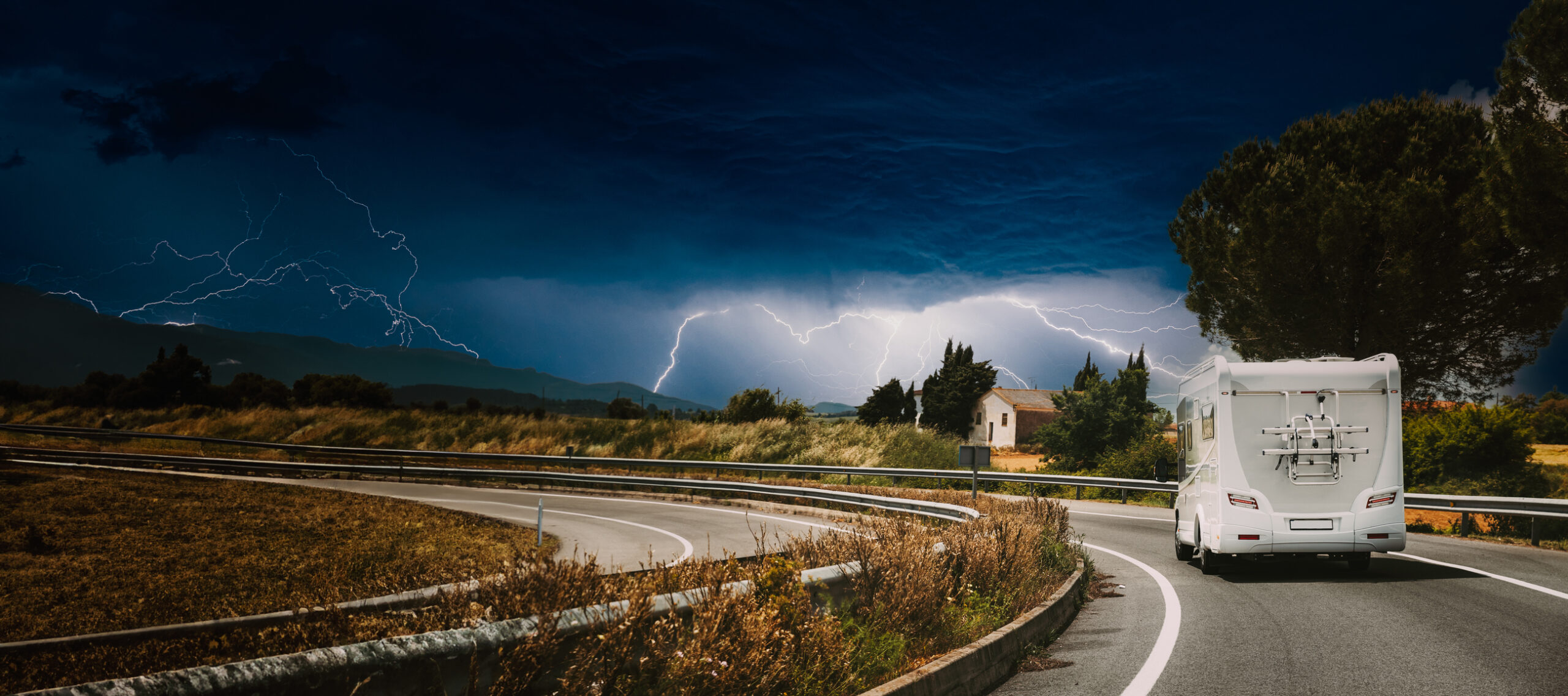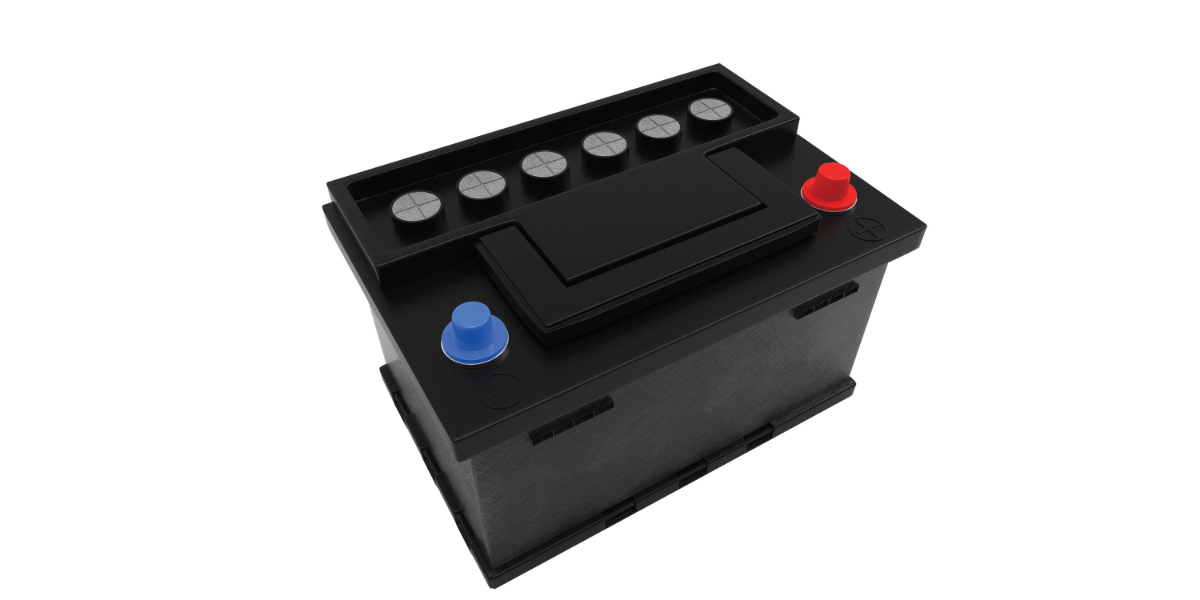RV Tech Q&A – September 2021
Ask Our Expert Your Question
Image Caption:
Dos and Don’ts
Question – What are 5 of the biggest dos and don’ts for a new RVer?
—Danielle (@DanielleCM8)
Answer – I’m not sure that there are only five, but here are five of each type.
Do
- Learn how to safely handle a large and heavy vehicle before venturing out on a trip.
- Measure and write down the exact overall height and write it down, perhaps on a strip of masking tape in view of the driver.
- Watch out for low clearances at places like filling stations and bridges.
- Practice driving and backing the rig both day and night, and if necessary coordinating backing with an assistant.
- Practice rapid braking and avoidance maneuvers, and with trailers, manually applying the brake control to bring swaying under control.
Don’t
- Enter a refueling station with a propane-powered furnace, hot water heater, or refrigerator operating.
- When pulling away from the pumps at a filling station, don’t start your turn too early, because the tail swing on a long vehicle may hit those metal posts designed to protect the pump.
- Allow your RV to be exposed to freezing temperatures unless it is properly winterized.
- Park on a slope without chocking the wheels.
- Drive during high wind warnings for high-profile vehicles.
Products for Longevity
Question – What are a few must-have items that should be added to any rig that will significantly improve the RV’s longevity?
—Danielle (@DanielleCM8)
Answer – Many trailers have very basic suspensions, most come without any shock absorbers. This can result in excessive bouncing, which can lead to structural damage, broken dishes, etc. If you have a trailer, look underneath to see if it has shocks. If not, add some. Your RV dealer can help you find an aftermarket installation kit to fit your trailer.
Many motorhomes have problems with swaying and tail swing or fishtailing when driving on the highway, especially when being passed or passing large trucks and in crosswinds. Aftermarket products such as the Davis Tru Trac bars help stabilize the chassis and ride quality. Again, your RV dealer can help.
On any tow vehicle, trailer, or motorhome, suspension upgrades such as higher quality shock absorbers, air springs, and new or upgraded anti-sway bars can improve ride safety and comfort and reduce the pounding of rough roads.
An RV cover designed to fit your coach can prevent a lot of sun and weather damage and increase longevity and trade-in value.
Road Emergencies
Question – What should you do if there’s an emergency on the road?
—Ms. Enriquez (@MsDEnriquez)
Answer – It depends on what kind of emergency you’re having. Preparation should begin long before you leave home. Medical emergencies require rapid responses. It’s essential to quickly assess the situation and call 911 for any sort of serious or potentially life-threatening condition. I also recommend taking first aid and CPR training, which is often available through the Red Cross or a local hospital. You should prepare and carry a first aid kit with all the essentials. If anyone you are traveling with has any sort of medical condition, you should carry medications as needed also.
Fire is another emergency that requires an immediate response. Again, quickly evacuate all persons and pets, determine the source and type of fire, call 911, and if the fire is safe to fight, use the onboard fire extinguishers to put it out of possible. Fumes and smoke can quickly overcome a person inside, so don’t endanger your life to save a coach. I recommend carrying at least two five-pound dry chemical extinguishers, rather than the smallish 2.5-pound units often found in RVs. Place them at opposite ends of the RV, or one in the tow vehicle, where they can be quickly accessed.
Mechanical breakdowns and accidents are the other common types of emergencies you may encounter. For accidents, determine whether persons are injured, the location and if vehicles or debris are blocking the roadway, then call 911. A GPS can provide the coordinates of remote locations. Render aid as needed.
If you experience a mechanical breakdown, make your best effort to pull safely off the road to the right shoulder and activate your four-way flashers, and put out warning triangles if you have them. Shut the engine off as soon as possible, especially if it is overheated or low on oil. Determine to the best of your ability what is the problem, and if needed contact your road service provider (you do have one, right?). If a disabled vehicle is a traffic hazard contact the police. Police can also provide you with information on towing or mobile tires or repair services if needed.
Roof Care
Question – What’s the best way to maintain an RV roof to stay within warranty? Can this be done on an RV without a ladder attached? And are roofs walkable?
—Jonathan Coke (@jonathancoke)
Answer – An important first step is to carefully read the entire roof warranty document. If the issuer of the warranty requires inspections at a certain frequency or by a certain facility, make sure you are in compliance and have documentation. Regular inspections can detect damage and deterioration before significant water damage occurs, and are a good practice even after a warranty expires. And problems should be corrected immediately and the roof covered temporarily until repairs are able to be made. If the coach doesn’t have a ladder to the roof, of course, you will need a separate ladder. However, if there’s no ladder, check with the manufacturer about acceptable roof loading before climbing up there. Persons who are very heavy or have balance problems should stay off the roof.
Window Leak
Question – If there is a leak in a 2020 motorhome by the window should I have all the sealant replaced everywhere?
—Stephanie Justice (@nursejustice)
Answer – Since the coach is not that old, I don’t recommend the complete replacement of all sealants due to the time and cost involved. Instead, I suggest having an experienced professional RV technician carefully inspect all the sealant areas to determine what is actually needed. Depending on your make and model and when and where you bought it, it may be covered under warranty.
Tire Deflation
Question – Does it really help to slightly deflate the tires when towing?
—Jonathan Coke (@jonathancoke)
Answer – Correct tire pressure is critical for the safety and longevity of your tires. I’m assuming someone told you to reduce tire pressure for a softer ride. Don’t do it UNLESS the tires are truly overinflated! Underinflated tires can heat up and disintegrate, possibly causing damage or a crash. Truck, trailer, and motorhome tires all are designed to carry a certain amount of weight at a specific inflation pressure. These numbers can be obtained by looking up the load-inflation table for the tire brand, model, size, and load rating tire you have. They are listed on the tire manufacturer websites and also available at tire dealers. Using them requires that you know exactly how much weight is on each tire. This can be determined by taking your rig to a truck scale, found at truck stops and other locations; use an internet search for ”truck scale near me.” Until you have weighed each axle, you should inflate the tires to the maximum recommended pressure printed on the sidewall to avoid damage from overloading/overheating the tires.
Monthly Maintenance
Question – What type of maintenance should be done monthly on a camper?
—Karen McCollum (@KarenMcCollum12)
Answer – Run your generator (if equipped) – This is especially true with gasoline gen-sets because gas goes bad quickly. Run it at about 50 percent load each month as per the manufacturer’s instructions. Use a fuel stabilizer, such as Sta-Bil, for longer periods of storage (except propane gen-sets).
- Top Off Batteries – Use only distilled water to top off batteries’ fluid levels. Minerals in tap water shorten their life span.
- Clean The A/C – Vacuum and clean vents.
- Under The Hood – On your tow vehicle or motorhome, check fluid levels, hoses, clamps, and that there are no signs of leaking. Change oil when needed.
- Test Safety Equipment – Ensure the smoke, carbon monoxide, and other battery-powered detectors or safety equipment are all working properly.
- Keep Pests Out – Keep rodents out by checking inside and underneath the rig for any signs of gnawing, feces, loose, cracked insulation, or rodent access points.
- Slideouts – If your RV has slideouts, follow the manufacturer’s instructions, lightly lubricate the mechanism to operate smoothly and protect against rust or corrosion. Check seals for cracking, distortion and damage. There are also sprays to treat the seals if needed.
- Tire pressure – Obtain a quality gauge so you can inflate your tires accurately. Follow load-inflation tables for proper inflation.
- Batteries – Clean the terminals. Always check the water levels on wet cells, refill with distilled water. Maintain battery charge with a maintenance charger during storage.
- Hydraulic pump reservoir – Check fluid level if you have hydraulic leveling jacks or hydraulic slideout rooms. If the level is low check for leaks. Check when the slides are in and the jacks are up.
Spare Tire Mounting
Question – Where would you mount or carry a spare tire for the Coleman Lantern trailer?
—Donna Musgrave (@Iluvfastracks)
Answer – The Coleman Lantern is a conventional travel trailer and therefore the spare can be carried on a rear-bumper mounted rack (several types are available from Camping World, along with tire covers). If you want it hidden, you might try something like the BAL Hide-A-Spare. Until you get something, I suggest you carry a spare in your tow vehicle. Also, make sure you have the correct jack and lug wrench.
Pre-purchase Considerations
Question – How should we properly evaluate and research an RV to minimize costly repair and mechanical issues?
—@TheMid70s
Answer – First you need to narrow down your search to a specific type of RV, for example, a Class C motorhome of about 24 feet in length. Then determine who makes this size and type. Or a 30-foot fifth-wheel trailer, as another example. It’s important to decide if you want to buy new or used. Then you can research online and after looking at the manufacturer’s websites, perhaps go to an RV show and/or dealerships. There are many websites for owners of specific brands, along with general RV sites. Peruse those to get a feel for what issues owners are discussing. Finally, for used RVs, I suggest a pre-purchase inspection by an RV repair shop that doesn’t sell RVs. You might even be able to get a mobile RV repair person to come to inspect it for a fee.
Most Beneficial Maintenance Items
Question – What are the most beneficial maintenance items that will increase the life of an RV?
—Greg Santangelo (@olegnatnasgerg)
Answer – Here are a few of my picks:
- Inspect the roof and sidewalls and reseal where necessary Inspect the furnace – clean the blower and remove any dust, lint, and obstructions as necessary, test for LP-gas leaks.
- Inspect the hot water heater – flush the holding tank, check anode, manually operate pressure-temperature relief valve, and clean burner tube, as necessary.
- Inspect refrigerator – heating elements, flue tube, etc. Check for LP gas leaks.
- Check water system – flush and freshen water supply, flush holding tanks, and add chemicals.
- On trailers, inspect axles, brakes and bearing hubs, lube as necessary.
- Perform battery care, using distilled water as needed for wet cells, and clean terminals.
- Inspect tires for wear and age cracking and inflate properly.
- Clean exterior and apply protective waxes and treatments.
Winterizing for use
Question – What are the best ways to winterize a camper and still be able to use it during the colder months without creating moisture issues, etc.
—Robert J (@MainelyRob)
Answer – Normally, winterizing for storage includes either draining the water system completely or adding special RV antifreeze designed for potable water systems. If you plan to use the RV during freezing weather, you’ll need to keep the heat on inside and ensure that the fresh water tank is protected from freezing, Some RVs come with cold weather packages which include insulation around the freshwater and holding tanks, and/or electrical heating elements under them which prevent freezing. If your coach doesn’t have this, it could be added. If you use electrical heating you won’t be able to dry camp (without hookups) unless you run a generator. Regarding moisture issues, it’s important to provide near-constant air circulation with outside air. A slightly open vent or window should do the trick. If the windows become fogged up with moisture increase ventilation.
Traveling with Special Needs
Question – Van vs trailer, traveling with special needs
—Ms. Enriquez (@MsDEnriquez)
Answer – Vans are frequently outfitted with wheelchair ramps if this is what’s needed. Therefore a Class B van-based motorhome could be modified by one of the handicapped van outfitters. If you prefer a trailer, you could pull it with a ramp-equipped van, and probably the easiest solution would be a toy hauler type with a rear drop-down ramp. As far as any other provisions, handicap vehicle modifying shops are found in many urban areas, an internet search (Handicap van conversions) should find them easily.
Wi-Fi Boosters
Question – What is the most affordable and reliable Wi-Fi system to have that can stream and assist with work from an RV?
—Kelly Creamer (@ksherbit10)
Answer – Many RV campgrounds have fairly weak WIFI signals because of the distances involved, plus some RVs have metal frames, etc. which further block signals. Experienced campers solve this by using WiFi boosting antennas, and/or WIFI amplifying repeaters. Both Winegard and King offer a selection of quality WIFI and cell phone signal boosters and antennas. You can see them at https://www.campingworld.com/electronics/wi-fi-systems-cell-phone-boosters.
An example of a lower-priced antenna is the FBA_ALFA-ARSN19M Alfa WiFi Booster SMA Omni-Directional antenna found on Amazon.com.
Leveling Blocks
Question – What are the best leveling blocks out there?
—Kurt Muller (@KurtMuller20)
Answer – Not everyone will agree on what are the best leveling blocks. Some folks on a limited budget and just-the-basics sensibility will be just fine with wooden blocks made from lumber scraps because they work great and are easy to use. Others, not so much. It’s important to have your rig level, not just for the comfort of the occupants, but also because absorption-type refrigerators need to be close to level to operate correctly.
Among the favorite types available are the Andersen Camper Levelers and the Beech Lane Leveling Systems. These are wedge types, which will work with dual rear tires on motorhomes by doubling them up. While you’re at it, consider getting a leveling system that will tell you on your phone when you are level. The LevelMate Pro is one such unit.
Solar Panel Roofs
Question – When should we start seeing the roofs of RVs made of solar panels?
—@unstableracefan
Answer – There are solar roofs available for houses, but it’s difficult to guess when such items will be offered on RVs. Many RVers have almost completely covered their roofs with solar panels, of course. Some problems holding back solar RV roofs are costs and the fact that the RV market is far smaller than the housing market (just about everyone has a house), which leads investors away from the RV market. I would anticipate seeing RV solar roof panels in a few years as options on higher-end rigs first.





